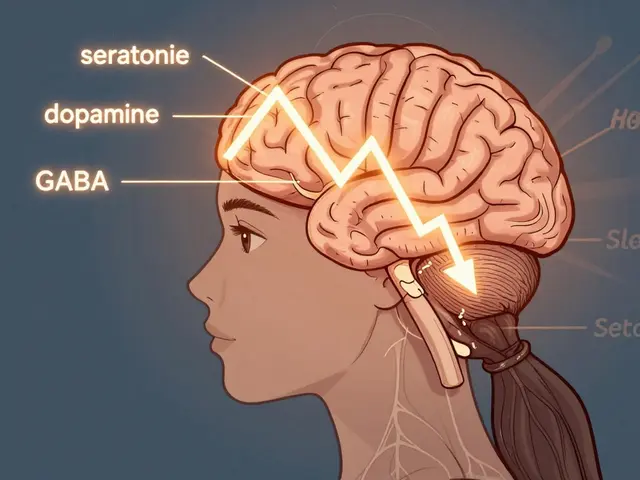Hormone Balance: Practical Tips and Related Articles
Hormones affect sleep, mood, weight, fertility, skin, and energy. If something feels off, the cause is often hormonal or tied to medication that changes your hormones. This tag page groups clear, useful reads—from fertility options to drug side effects and safe supplement choices—so you can find practical fixes fast.
Simple habits that actually help
Eat protein with every meal to stabilize blood sugar and reduce hormone-driven cravings. Skipping protein makes insulin and cortisol swing, which then nudges appetite hormones like ghrelin and leptin. Prioritize sleep: aim for consistent bed and wake times. Lack of sleep raises cortisol and throws reproductive hormones out of sync.
Move daily but skip extreme dieting. Moderate resistance training and brisk walks improve insulin sensitivity and support healthy testosterone and estrogen balance. If stress is constant, add short breathing breaks or a 10-minute walk—lowering cortisol helps thyroid and sex hormones recover.
Watch meds and supplements closely. Some prescriptions change weight, mood, or libido because they alter hormone signaling. For example, aromatase inhibitors used in breast cancer treatment can affect mood; steroids like prednisone change metabolism and salt balance; antidepressants sometimes alter appetite and weight. Always discuss changes with your prescriber before stopping or swapping meds.
Where to read next on this tag
For fertility issues when ovulation is absent, check our article on pregnancy without ovulating—real options like IVF with donor eggs and hormonal induction are explained in plain terms. If a cancer drug or hormone therapy affects your mood, read the anastrozole and depression piece for practical coping tips and what to ask your oncologist.
Looking at medication alternatives? We cover steroid-sparing options for skin conditions, prednisone alternatives, and inhaler substitutes so you can discuss safer plans with your doctor. Worried about weight while on an SSRI? The escitalopram weight guide gives realistic nutrition and activity strategies you can use today.
Interested in natural supports? Find reviews of supplements like sarsaparilla, hawthorn, agrimony, and goji—each article explains claimed benefits, safety points, and when a supplement might interfere with hormone treatments or prescription drugs.
Practical tip: keep a simple symptom log for two weeks—note sleep, mood, energy, periods or libido, and any new meds or supplements. That record makes your next appointment faster and more useful.
If you want targeted help, click articles that mention your main issue (fertility, mood, weight, or skin). They’re short, focused, and give action steps you can try before or after talking with your clinician. Hormone balance isn’t one-size-fits-all, but small, steady changes make a big difference.





